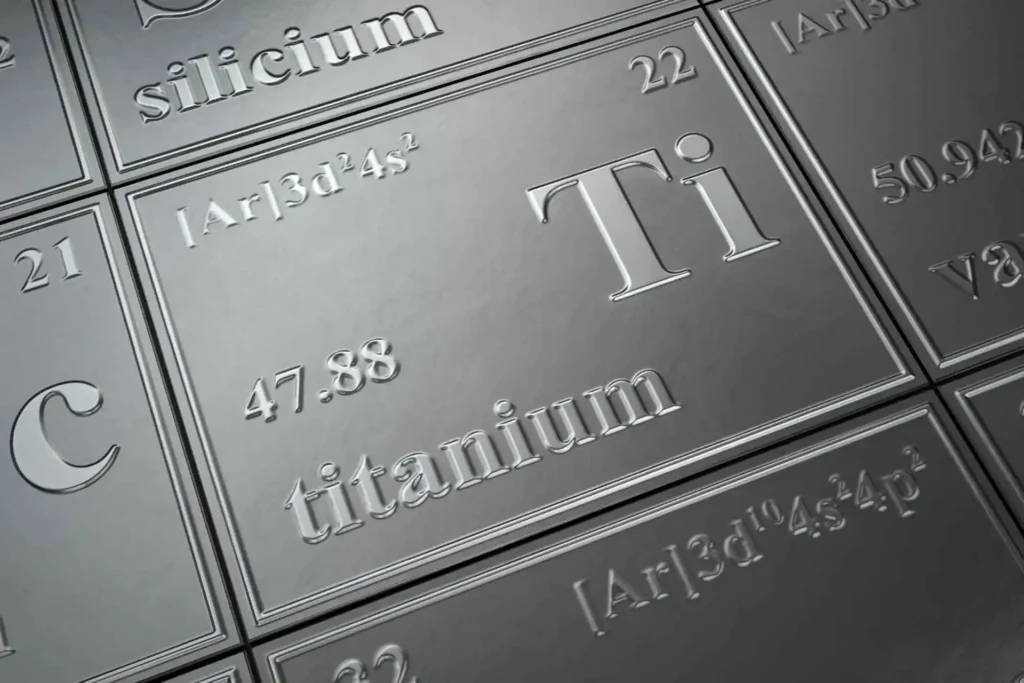Is Titanium Magnetic?
Have you ever wondered if titanium is magnetic? It’s an interesting question, especially since titanium is known for its strength, light weight, and many uses in the medical and aerospace fields. As someone who loves exploring the unique properties of materials, I thought I’d dive into the details and clear up any confusion about titanium’s magnetic properties. Spoiler alert: titanium’s not your typical magnetic metal!

What is Magnetism?
Before we get into whether titanium is magnetic, let’s take a moment to understand what magnetism is all about. Remember those science classes where you played with magnets and saw how they attracted certain metals? Well, that’s magnetism in action.
At the atomic level, magnetism happens when the electrons in a material line up in such a way that they create a magnetic field. Depending on how the electrons are arranged, materials can behave in three key ways:
- Ferromagnetic: These materials, like iron, are strongly magnetic and hold onto their magnetism even after a magnet is removed.
- Paramagnetic: These materials, including titanium, have a weak attraction to magnets but don’t stay magnetic once the external field is gone.
- Diamagnetic: These materials are slightly repelled by magnetic fields and don’t stick to magnets at all.
So, Is Titanium Magnetic?
Here’s the short answer: No, titanium isn’t magnetic. It’s what we call paramagnetic, which means it has a very weak response to magnetic fields, but it’s not enough to really notice in everyday life. You could wave a magnet around a piece of titanium all day, and it wouldn’t budge! But why is that the case?
Why is Titanium Paramagnetic?
It all comes down to the structure of titanium atoms. The electrons in titanium are arranged in a way that they don’t line up to create a strong magnetic field. This means that when you place titanium near a magnet, the reaction is super minimal. In fact, in most real-world scenarios, you wouldn’t notice any magnetic behavior at all.
Are Titanium Alloys Magnetic?
Now, this is where things can get a little tricky. Pure titanium isn’t magnetic, but titanium is often mixed with other metals to create alloys for specific uses. These titanium alloys can sometimes show a slight magnetic response, depending on the metals they’re combined with. For example, if you add certain magnetic metals to titanium, the alloy might display weak magnetic properties. But for the most part, even alloys retain the non-magnetic nature of pure titanium.
How Does Titanium Compare to Other Metals?
When you compare titanium to metals like iron or steel, there’s a world of difference. Both iron and steel are ferromagnetic, meaning they’re strongly attracted to magnets. Titanium, on the other hand, isn’t drawn to magnets at all. However, if you compare titanium to other non-magnetic metals like aluminum or copper, it behaves in a similar way but stands out for its incredible strength and light weight.
This makes titanium the go-to choice for industries where strength and non-magnetic properties are essential.
Practical Applications of Non-Magnetic Titanium
Now, you might be wondering: “If titanium isn’t magnetic, why is it so important?” Well, its non-magnetic nature actually makes it incredibly valuable in several fields:
- Medical Devices: Since titanium doesn’t interfere with MRI machines, it’s a safe option for implants like hip replacements and dental implants. Its biocompatibility is another big plus!
- Aerospace: Titanium is used in aircraft parts because it’s both lightweight and strong. Plus, its non-magnetic properties ensure it won’t cause interference with sensitive instruments.
- Security and Defense: From bomb disposal robots to high-tech scanners, titanium’s non-magnetic properties make it perfect for situations where magnetism could be problematic.
Properties of Titanium Beyond Magnetism
Titanium isn’t just non-magnetic—it’s got a whole list of properties that make it pretty incredible:
- Corrosion Resistance: Titanium can handle exposure to harsh environments, including seawater and strong acids, without rusting or corroding.
- Biocompatibility: Since titanium doesn’t react with the human body, it’s often used in medical implants.
- Lightweight but Strong: Titanium is stronger than steel, yet it’s much lighter, making it perfect for applications where weight matters.
These qualities, combined with its non-magnetic nature, make titanium an extremely valuable material across a variety of industries.
Can Titanium Set Off Metal Detectors or Be Used in MRIs?
Since titanium isn’t magnetic, it won’t trigger metal detectors, which is a big deal for people with titanium implants passing through airport security. Likewise, it’s completely safe to use in MRI machines because it won’t interfere with the magnetic field produced by the scanner. That’s why titanium is such a popular choice for medical implants.
Conclusion
So, is titanium magnetic? No, it’s not. Titanium is paramagnetic, meaning it has a very weak response to magnets. But that doesn’t make it any less impressive! Its non-magnetic properties, combined with its strength, corrosion resistance, and biocompatibility, make it a true superhero in industries like medicine, aerospace, and defense.
FAQs
1. Is titanium safe for medical implants?
Yes! Titanium’s non-magnetic and biocompatible nature make it an ideal choice for medical implants like joint replacements and dental implants.
2. Can titanium be magnetized?
No, titanium cannot be magnetized because it does not retain any significant magnetic properties.
3. What industries benefit from non-magnetic titanium?
Titanium is widely used in the medical, aerospace, and defense industries, thanks to its unique combination of strength, light weight, and non-magnetic behavior.
I hope this has cleared up any questions you had about titanium’s magnetic properties. It’s a fascinating metal with so many valuable uses, and understanding how it interacts with magnets is just one small part of its overall story!





